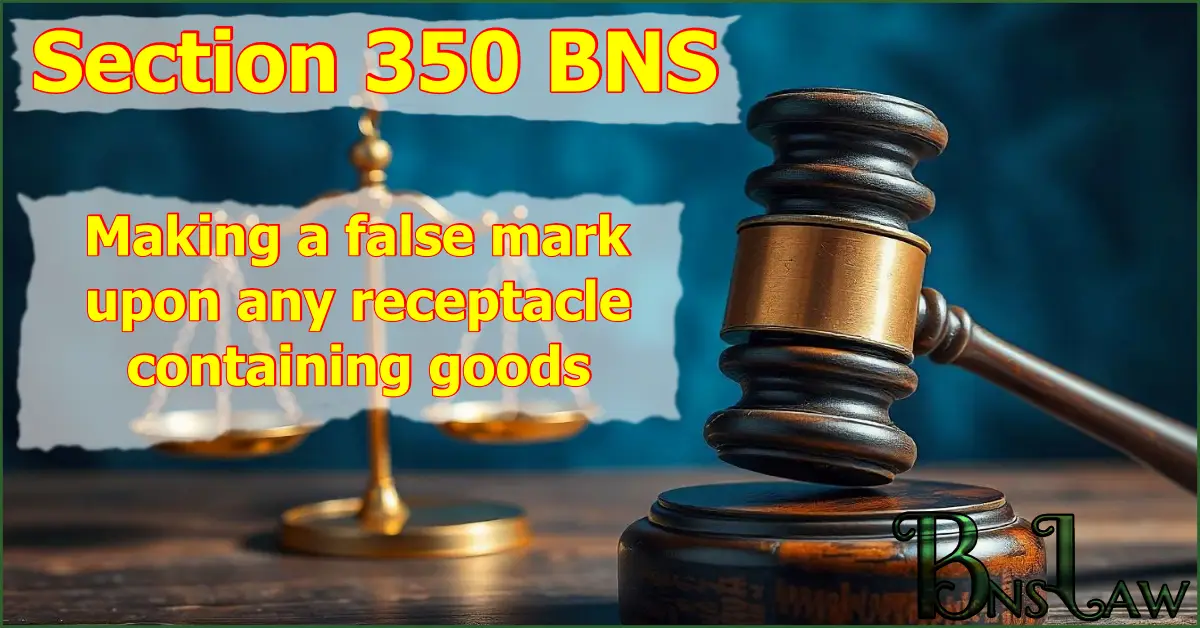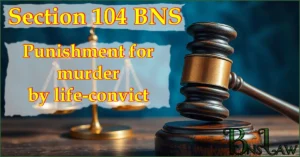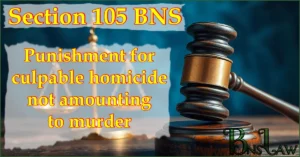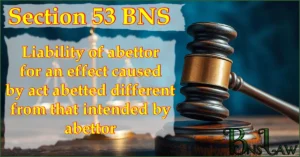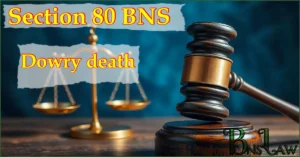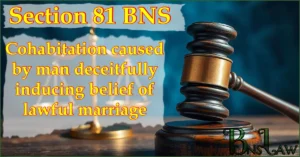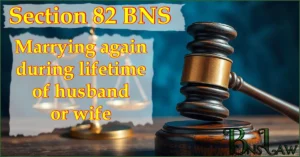Section 350 BNS | BNS 350
350(1) BNS
Whoever makes any false mark upon any case, package or other receptacle containing goods, in a manner reasonably calculated to cause any public servant or any other person to believe that such receptacle contains goods which it does not contain or that it does not contain goods which it does contain, or that the goods contained in such receptacle are of a nature or quality different from the real nature or quality thereof, shall, unless he proves that he acted without intent to defraud, be punished with imprisonment of either description for a term which may extend to three years, or with fine, or with both.
350(2) BNS
Whoever makes use of any false mark in any manner prohibited under sub-section (1) shall, unless he proves that he acted without intent to defraud, be punished as if he had committed the offence under sub-section (1).
READ OTHER SECTIONS OF CHAPTER XVIII — OF OFFENCES RELATING TO DOCUMENTS AND TO PROPERTY MARKS
FAQs of BNS Section 350
-
350 BNS punishment and fine
Punishment and fine under Section 350 of the BNS—
350(1): Imprisonment for 3 years, or fine, or both.
350(2): Imprisonment for 3 years, or fine, or both. -
350 BNS cognizable or not
The offence under Section 350(1) and 350(2) of the BNS is non-cognizable.
-
350 BNS bailable or not
The offence under Section 350(1) and 350(2) of the BNS is bailable.
-
350 BNS trial court
Offence specified in Section 350(1) and 350(2) of the BNS is triable by any Magistrate.
Important Points
- Cognizable Offences: These are offences where a police officer can arrest a person without a warrant.
- Non-Cognizable Offences: These are offences where a police officer cannot arrest a person without a warrant.
- Bailable Offences: These are offences where the accused can get bail from the police station itself. All bailable offences are listed in the First Schedule of the Bharatiya Nagarik Suraksha Sanhita (BNSS).
- Non-Bailable Offences: Offences in which bail is not granted directly from the police station but after hearing the case in the court, the judge decides when bail will be granted. All non-bailable offences are listed in the first schedule of the Bharatiya Nagarik Suraksha Sanhita (BNSS).
- In the above FAQ, “trial court” means the court that has jurisdiction to try the offence.
- In the above FAQ, the expression “Magistrate of the first class” and “Any Magistrate” does not include Executive Magistrates.
Read other Sections of the BNS
Reference Link: New Criminal Laws (BNS), Ministry of Home Affairs

